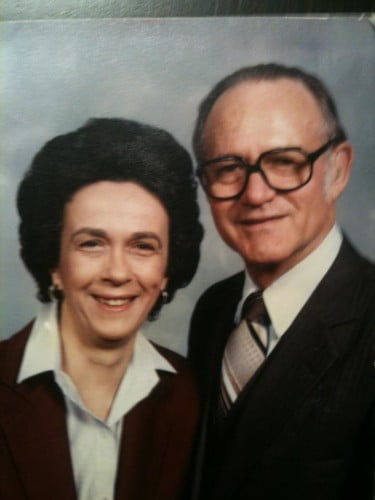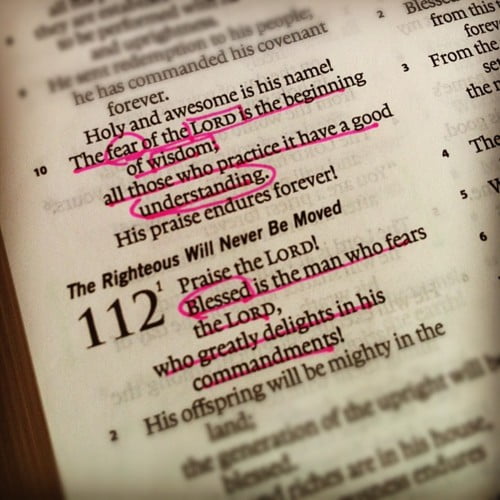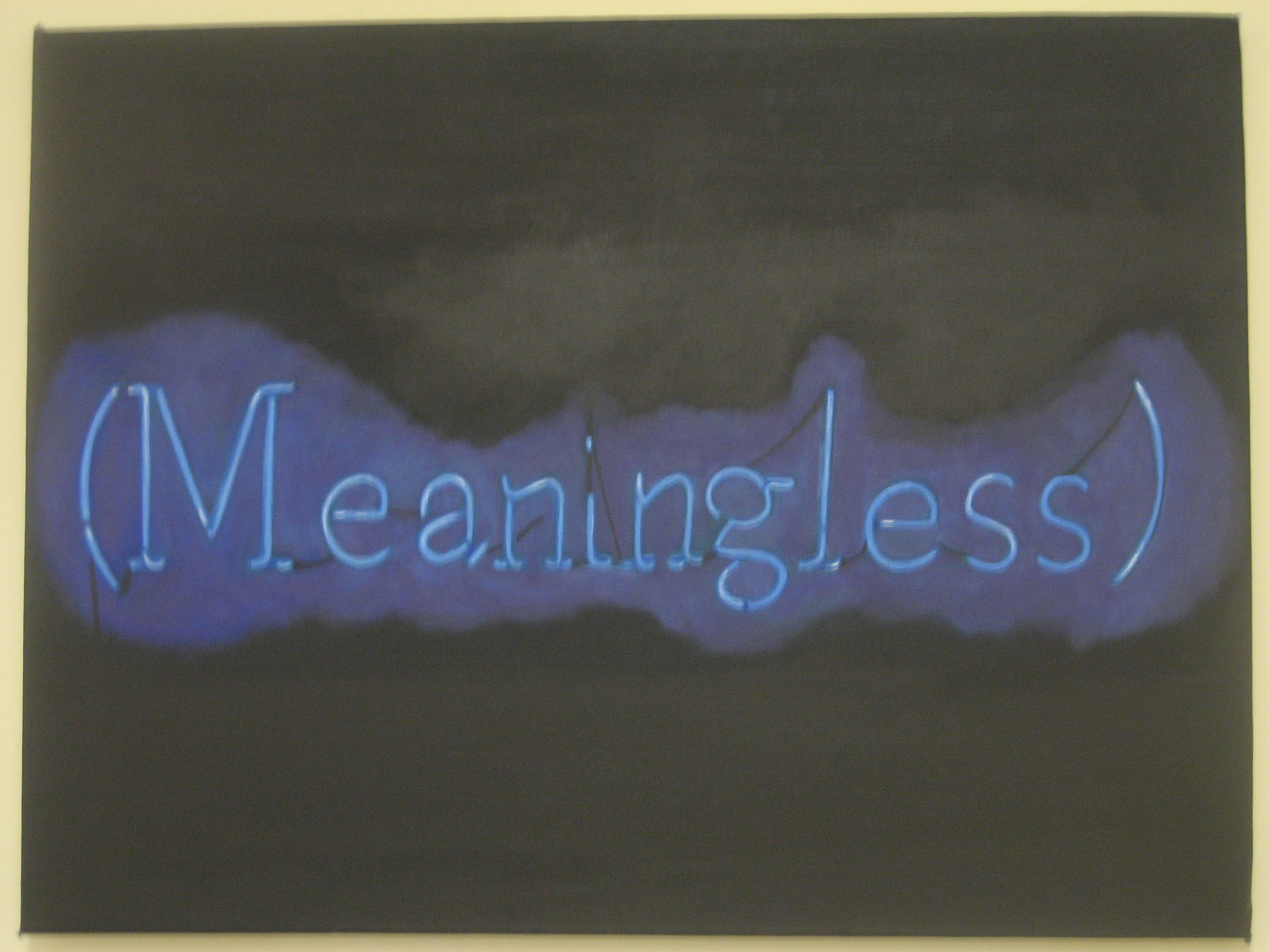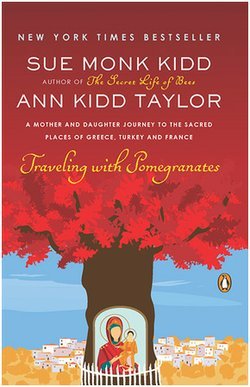Have you been in a hard space in your life lately? Have you felt confused or conflicted about a decision? Unclear about what step to take next?
To this very common experience, enter in this week's word: wisdom. Wisdom is defined as a reliable ability to judge and decide with soundness.
Sometimes we feel full of wisdom. Many times we don't.
Glennon Doyle, author of books such as the New York Times Best Seller, Love Warrior tells a story about being a young mom of three kids.
Her marriage was heading toward separation She’d not fully overcome her battle with bulimia, and her faith felt just as unstable as she looked on the outside. Yet, one day, much to her surprise she found herself at church attending a women's group meeting.
Being an open book personality, Glennon was first to speak up even as the new girl and spewed out the details of her troubles, going on and on about how hard her life was with detail after detail (for a long time!) . . . when one of the church ladies, Bette just looked at her and said, “Girl, what is going on with you?”
As Glennon kept going, she realized that Bette was not listening to her with wide eyes and OMGs! And NO HE DIDN’TS! as her younger friends usually did. In fact, Bette actually looked bored.
So Glennon said, “Bette, are you listening to me?”
She responded: “Oh, honey. Yes. I’m listening. And I’m sorry I’m not getting worked up with you. But the thing is that this stuff isn’t personal sweetheart- it’s just LIFE. You’ll make it through.”
Bette gestured toward a circle of her friends and added, “all of us have.” Then she squeezed Glennon's arm and went to pour more coffee.
Glennon writes later about this encounter saying, "These ladies knew life and life with God in a way in which I did not. That day I was shocked back into a new reality."
Such is the experience of being with wisdom-- someone bears witness to what we do not yet know (or see) yet.
Here's the update to the story: Glennon would find her way. It might have been a hard day, but it wasn't the end. And from staying close to that new circle of friends, she had the courage to make some bigger life changes bit by bit.
So this week, I'm wondering who speaks wisdom into your life? Stop and name a person or two. Then, think: when can you connect with them again soon?
I have to tell you, the closer I get to those who've lived and loved and experienced life to the fullest the more I start to feel that life is going to be ok.They, too, look at me with those loving eyes that say with their presence all will be well. And I believe them.
So today I'm saying the same thing to you: whatever you are going through right now, whatever is keeping you up at night, don't be afraid. Keep going.
XO
Elizabeth
 I never like telling someone no.
I never like telling someone no.
I never like hearing no.
I don't like that I just picked out a "no" clip art for this blog post. It's feels so harsh to me. And I don't like to be harsh.
Because isn't it true?
Telling someone no brings on disappointment. It ruffles up community life. It creates disconnection. It's stop word after all.
Hearing no messes with a sense of value. It can rob a person of their worthiness (if we let it). It usually feels like a door slam shut even if it's messenger approaches with respect and kindness. It's not a word radiating welcome.
And we love connection and welcome. So there's no wonder we feel that no is such a bad word. Or is it?
Let's start with this: time and time again I've learn that "No" is one of the most spiritual words I can hear. No is one of the most spiritual words I can offer someone else.
Here are two gifts of hearing the word no and saying it to others.
I was listening to a podcast recently by one of my favorite authors, Elizabeth Gilbert.
When asked the question about what she gave up to serve her creative process, she talked about the hardship of the word "no."
She bemoaned all the people who felt hurt by her "no's" and how it cost her friends, both personal and professional that she thought she'd have in her life forever. And visa versa.
Elizabeth reminded listeners that: "You have to sit with the discomfort that comes from the sacred no."
And here was the zinger question (paraphrasing here) she offered: what do you need to say no to so that you can fulfill why you are here on this planet?
This question is one that has stuck with me ever since I heard it.
Both to toughen me up when rejections come (believing that even the most devastating missed opportunities remind me that God is God and I am not) AND to have the courage to reject anything out of line with WHO I am made to be and HOW God wants me to use my time on earth.
There are a thousand amazing things to be and do, of course. Yet not all of these things were meant for me (or you either)!
So I'm wondering to WHO do YOU need to say "no" today?
How do you need to lick your wounds and move on from a "no" that has long kept you paralyzed?
What do the "no's" in your life have to teach you?
Let's keep learning and listening together. And saying no. It's good soul work.
A Sermon Preached: Psalm 111 A sermon preached in Chautauqua Institute Baptist House
![[ File # csp5262413, License # 1720724 ] Licensed through http://www.canstockphoto.com in accordance with the End User License Agreement (http://www.canstockphoto.com/legal.php) (c) Can Stock Photo Inc. / payphoto](https://elizabethhagan.com/wp-content/uploads/2015/08/wisdom-sign-500x373.jpeg)
We are new to one another this morning as preacher to congregation, but l wanted to let you in on a secret about me.
Though I’ve been ordained for almost 10 years, this is the only second time in my preaching life I’ve ever selected a Psalm for the focus text of a sermon.
The first and only other time I’ve preached on a Psalm, it was #51, the famed confession text from King David “For against you and you alone have I sinned” after his affair with Bathsheba.
And because Psalm 51 so closely aligns with a story from the historical books, I don’t think it really counts . . .
For the Psalm are lovely and beautiful prayers, make good texts for choral anthems, and are texts that we hold close to us when times get rough.
But as far as preaching, from my perspective, it’s a whole other story.
My fear of what to do with Psalm passages that go from “Great is the Lord, the whole earth is full of his glory” in one breath to the “O God go down and smite my enemies in the next” has kept me from them.
For some of the Psalter passages can feel a bit bipolar if we you sit with them long enough. And being an organized sort of person confusing texts are really not my thing.
This morning, though, just for you, I’m taking the plunge in response to sitting with the words of Psalm 111 this week.
It’s a Psalm that gives us language to speak about God. It’s a Psalm that gives us a description of how God both exists and dwells with us. And, it’s a Psalm that most commentators say could be summarized, as “God’s resume” if there’s ever was such a passage.
And most of all it’s a Psalm that leads us to the word: wisdom.
Have you ever been asked to give an introductory speech for someone who was going to win an award or give a presentation?
It can be quite a daunting task can’t it? Especially if it was someone whom you really like (or you don’t)
It’s difficult to know what direction to take the speech. Should you start with a joke? Should you tell an anecdotal story? Should you make something up if you don’t have anything nice to say?
For nothing is worse than a bad or most of TOO LONG introductory speech, right? Times when you just want to cue the “get off the stage” orchestra music in your head . . .
I can imagine similar pressure faced the original writer of Psalm 111. Though we do not know the identity of the one who penned this text, we do know its purpose: a litany for worship. This text like countless other Psalms like it existed as a corporate song/ prayer for worship.
And for the Psalmist, only just the right words would do.
The Lord needed to be praised rightly! Everyone needed to know of God’s splendor.
And as we begin reading what we hear is of some of his efforts to put thoughts into words:
“Great are the works of the Lord . . . full of honor and majesty . . . He has gained renowned by his wonderful deeds; the Lord is gracious and merciful.”
The Psalmist wants us to know that the Lord is a good God who shows love through actions.
There is no need too small of ours too small that does not concern the Lord. For example, we are told that according to verse 5, the Lord gives food.
In the same way that Jesus would later ask us to depend on God in prayer: “Give us this day our daily bread.” We learn that God cares about our daily nourishment.
Moreover, in verse 6 the Psalmist also wants us to know the vastness of who God is!
Proclaiming: “He has shown his people the power of his works.”
For, God is not someone who is like us, who is limited by the confines of time and space. No, God is full of glory. God can do whatever God wills.
And most of all, the Psalmist writes of how God longs to be close to us!
We are told in verse 9 that “He sent redemption to his people; he has commanded his covenant forever. Holy and awesome is his name.”
Our God is invested in relationships. God is not a deity that lives out there far away who is untouchable for us mere humans, but our God longs to know US individually.
God longs for peace among the nations. This is why “He sent us redemption.” God cares about our life together in community, both with God and with each other. We are not left alone on earth to simply fend for ourselves. God helps us love each other.
So with all of this true, the climax to the Psalter comes in verse 10 when we hear these words that probably are familiar to you, “The fear of the Lord is the beginning of wisdom.”
Or, in other words, congregation: listen up, here’s the important thing you can do in life: know God. Why? Because your outlook on life depends on it!
Let me say it again, “Fear of the Lord is the beginning of wisdom.”
Wisdom, though it’s one of those words, at least in church circles I run in that is associated with God’s character. What about yours?
When I say wisdom, what first comes to mind?
For me it’s a picture of someone with grey hair.
As a Proverb goes, “Gray hair is a crown of splendor; it is attained in the way of righteousness.”
But maybe we have the whole grey thing wrong . . .
Wisdom might be something more.
When I was a child, I looked forward to the weeks in the summer, I would travel from my home in Chattanooga, TN to Nashville, TN to spend time with my grandparents: Gran and Granddaddy, two of the kindest most generous people I’ve ever known in my life.
I’d come visit them without my sister in tow (such a treat) then I’d go to swimming lessons at their YMCA or attend basketball camp at Vanderbilt, hoping to be the next college star player one day (which of course didn’t happen but I still had fun).
 I loved how special Gran and Granddaddy would make me feel.
I loved how special Gran and Granddaddy would make me feel.
They’d buy me all my favorite foods. My grandmother would even iron the sheets on my bed, making it feel heavenly to go to sleep at night. (Who does that?) I especially loved how she’s come tuck me in at night rubbing my back till I fell asleep and talking to me about whatever I most felt like saying.
I can remember one such chats when we got on the subject of grey hair. In my childish innocence, I asked Gran about her salt shaker, black and white hair and why it was so “two toned.”
No look of horror came over her face (God bless her soul) for my strange question.
But she went on to describe that the grey in people’s hair often came as they got older. Still, I was curious about how you “got it.” I’d heard from someone who grey hair equaled smarts.
And this is what she said: “Grey hair is not only about getting older, sweetheart. But when I look at my grey hair in the mirror, I think about how God has watched over me my whole life. God is good.”
I heard her that night: age does not necessarily equal wisdom, nor does a head of grey hair.
But wisdom had everything to do with whom God is and how we’ve come to know God in our lives.
Most of all wisdom gives us perspective.
Several years ago, I read a Huffington Post article by popular Christian blogger and author, Momastary otherwise known as Glennon Doyle Melton, a young mom in her 30s.
She wrote about a time in her life when everything was crumbling around her. Her marriage headed toward separation She’d not fully overcome her battle with bulimia and her faith felt just as unstable as she looked on the outside.
Yet, one day she found herself in church sitting with a group of women who were all at least 20 or 30 years older than her.
Being an extremely outgoing person, Glennon was first to speak up and spew out the details of her troubles when one of the church ladies looked at her and said, “Girl, what is going on with you?”
Glennon talked and talked. Every panic of her heart came out almost without a breath.
She writes of one of the women, Bette:
She was not listening to me with wide eyes and OMGs! And NO HE DIDN'TS! like friends my own age do. I was getting very little feedback from her and in fact -- she looked sort of bored.
So I said, "Bette, are you listening to me?"
And she said "Oh, honey. Yes. I'm listening. And I'm sorry I'm not getting worked up with you. But the thing is that this stuff isn't personal sweetheart- it's just LIFE. You'll make it through."
She gestured toward a circle of her white-haired friends and added, "all of us have." Then she squeezed my arm and went to pour us some coffee.
They knew life and life with God in a way in which Glennon did not. It was a shock back into reality the bigger picture of all her trouble.
Such was the experience of being with wisdom: perspective.
And so yes, she would find her way through this difficult time. All would be well. All matter of things would be well.
The wisdom of these older friends helped her to see.
 Such is exactly what the Psalmist is hoping that his congregation will realize.
Such is exactly what the Psalmist is hoping that his congregation will realize.
That when we know who God is we become wise. And it is this wisdom that helps us take the experiences our lives offer us and move through them with a different kind of being.
Or as one very good friend of mine often says to me when I get stuck in life (which is a lot):
“Know God, Elizabeth. Start there. And then you’ll see what to do next. You really will!”
This week, we’re all gathered at this beautiful place called Chautauqua, a week that is so many us of a highlight—a week to learn, and a week to take in knowledge from some of the best teachers that this world has to offer.
And it’s a week when we get to walk these ground where scholars, teachers and world changers have walked before us and gone forth from this place doing amazing things for the good of others.
I have to think that we’re all ready on this Sunday morning to gather as much knowledge that we can in the days ahead.
But, as we begin might be good to stop and consider HOW we are beginning. What are we really here for? What is the real source of this wisdom that we all crave?
The fear of the Lord is the beginning of wisdom.
BUT, is truth is such is all rubbish in comparison to the One is Lord of all.
The one in whom we are asked to praise, we are asked to say thank you to, the one that we are to name as our Creator God.
Do we want to be wise?
The fear of the Lord is the beginning of wisdom.
And wisdom is not just for grandmas after all. It’s available to us all.
AMEN
 The book of Ecclesiastes opens in this way:
The book of Ecclesiastes opens in this way:
The words of the Teacher, son of David, king in Jerusalem:
“Meaningless! Meaningless!”
says the Teacher.
“Utterly meaningless!
Everything is meaningless.”
The word meaningless seems to go against everything we've heard about spiritual formation, doesn't it?
In classes, sermons and lectures, we read passages of sacred texts and we are asked to make meaning of them.
I can't remember a Sunday School class I've attended when there was not a "life application" section of the discussion.
I can't remember a workshop I've attended where I wasn't asked to report at the end "what I learned today."
I can't remember a time when I haven't been that person who doesn't try to make sense out of everything that happens to me.
Furthermore, how can everything be meaningless? Is this really in the Bible? We might wonder . . .
Well, the past several weeks I've stuck close to meaninglessness even though it seems to go against every meaning-making fiber in my teacher, preacher and writer self.
Because sometimes life just doesn't make sense. Sometimes our "everything happens for a reason" mantras lead us to a God that seems cruel and incompatible with everything else we know about the Divine. Sometimes meaning doesn't come. And we need to keep living life anyway.
When I was in the ER for the first time during my whole surgery ordeal, I started thinking that I should remember all the details of being wheeled down a long hallway for a CT scan.
I told myself I should notice what color the walls were, what the air smelled like, how the lighting fell on my bed and so on-- all the details that my writing brain could use to help make meaning of the situation later. Isn't this what my best writing teachers had prepared me to do in this very moment?
But then I stopped myself. I simply couldn't think like that. I couldn't make meaning.
Will there come a day when I want to make meaning of this situation and other puzzling situations in my life? Maybe.
But my point is that I've learned that we don't always have to.
Ecclesiastes is a wisdom book after all.
It's a book written by a person who I can imagine saw with his own eyes some of the worst of life's troubles. It's a book written by a person who I can imagine looked life's horrors in the face and desperately wanted to find purpose. And, as much as he wanted to throw a "everything happens for a reason" band-aid on life, he couldn't. He couldn't because he needed to tell the truth.
“Meaningless! Meaningless!”
says the Teacher.
“Utterly meaningless!
Everything is meaningless.”
It frustrates me that we in the church and the larger spiritual community cling to linear thinking to the decree that we're kept from the deeper waters of faith. The deeper waters called the unknown.
We say, "Oh it was so sad that X happened . . . but look what blessing came afterwards!" (As if to assign meaning to devastating and senseless tragedies)
Sure, life has its ebbs and flows. Most human lives have both good and bad on their plates at some point along in the journey. But who are we to say that we always know that X happened so that Y could occur?
Some situations of life can be meaningless.
Meaninglessness is not a reason to plunge into despair, however. Meaninglessness, I am learning is a gift for contentment.
When we come to realize that not every experience in life has to be seen as a puzzle piece that leads to enlightenment right away, then peace of what is can find us.
We call a spade a spade: meaningless. And, then we move on.
After all, didn't the Ecclesiastes writer go on to say this:
There is a time for everything,
and a season for every activity under the heavens
Meaninglessness is not the whole story.
“I realize what a strange in-between place I am in. The Young Woman inside has turned to go, but the Old Woman has not shown up.”
― Sue Monk Kidd
“I've tried to shield myself from life and inhabit my own small, safe corner; but there's no immunity from life.”
― Ann Kidd Taylor
“I realize I'm trying to work out the boundaries. How to love her without interfering. How to step back and let her have her private world and yet still be an intimate part of it. When she talks about her feelings, I have to consciously tell myself she wants me to receive them, not fix them.”
― Sue Monk Kidd
 Such were some of my favorite quotes from the book I finished about a month ago called Traveling with Pomegranates: A Mother-Daughter Story. Traveling is a book that gives its readers a snapshot into the relationship shared between Sue, the mother in her early 50s and Ann the daughter a recent college as they both navigate through life transitions. And as they do so, figure out what the next step of their relationship with one another might be as well.
Such were some of my favorite quotes from the book I finished about a month ago called Traveling with Pomegranates: A Mother-Daughter Story. Traveling is a book that gives its readers a snapshot into the relationship shared between Sue, the mother in her early 50s and Ann the daughter a recent college as they both navigate through life transitions. And as they do so, figure out what the next step of their relationship with one another might be as well.
I was first introduced to the author Sue Monk Kidd almost 10 years ago during a time in my life when my theology was in transition. A friend passed along the book, Dance of the Dissent Daughter. It was a time in my life I really had no idea what feminist theology was all about. At that time, reading this text opened my eyes to many of the oppressive male imagery in scripture and in Christian tradition. This book became a conversation tool, among many others, that helped me say "yes" to the serious study awaiting me in seminary. I wanted to figure out how female images of the divine fit into (or not) what I had already been taught about God.
So, being a fan, I was eager to see what Sue Monk Kidd"s latest memoir had in store for its readers, but this time with chapters from her daughter, Ann. And though the book felt emotionally intense at times (as if you are literally reading their journals), with breaks for thought and reflection, I paged through it quickly and soon passed my copy on to a friend. As a budding writer myself, I appreciated the call story both Sue and Ann experienced in their travels to write and the call to write together. Their journey of renegotiating boundaries, passion, relationships and hope read very authentically to me. I believe the experiences of many women are found in these pages-- just with different details. And, I left my experience of reading it as any good book does-- as if I'd made new friends that I hoped would share more of their story with me one day.
Most of all Traveling with Pomegranates made me think about these bigger picture things:
1. The desire in all of us for deeper relationship with "mother" and "daughter" figures in our lives as women. We are never too old to want a mother or a daughter in our lives.
2. The importance of shared wisdom passed on between the generations even as differing of perspectives make it hard for us to relate sometimes.
3. The joy that rises from the gift of travel. Sometimes it takes us getting out of our normal environment to really see our lives as they really are.
4. Doing with your life what is a "necessary fire" within us, not just what pays the bills.
5. Courage to not just do things the way they've always been done. Who says we are not the one to blaze a new trail?
6. The difficulty we all have of saying "no" when this "no" comes at the cost of what others expected from us. We are pleasing creatures. But if want our soul to live, we must break free of the obligations and the shoulds.
7. Writing takes time and drafting and more drafting as well as being with other writers. The more you get into writing, the more you realize you the only way to get better is to write more. And some more.
Anyone else read this text and want to chat about it?
Next up tomorrow: In the Santuary of Outcasts by Neil White